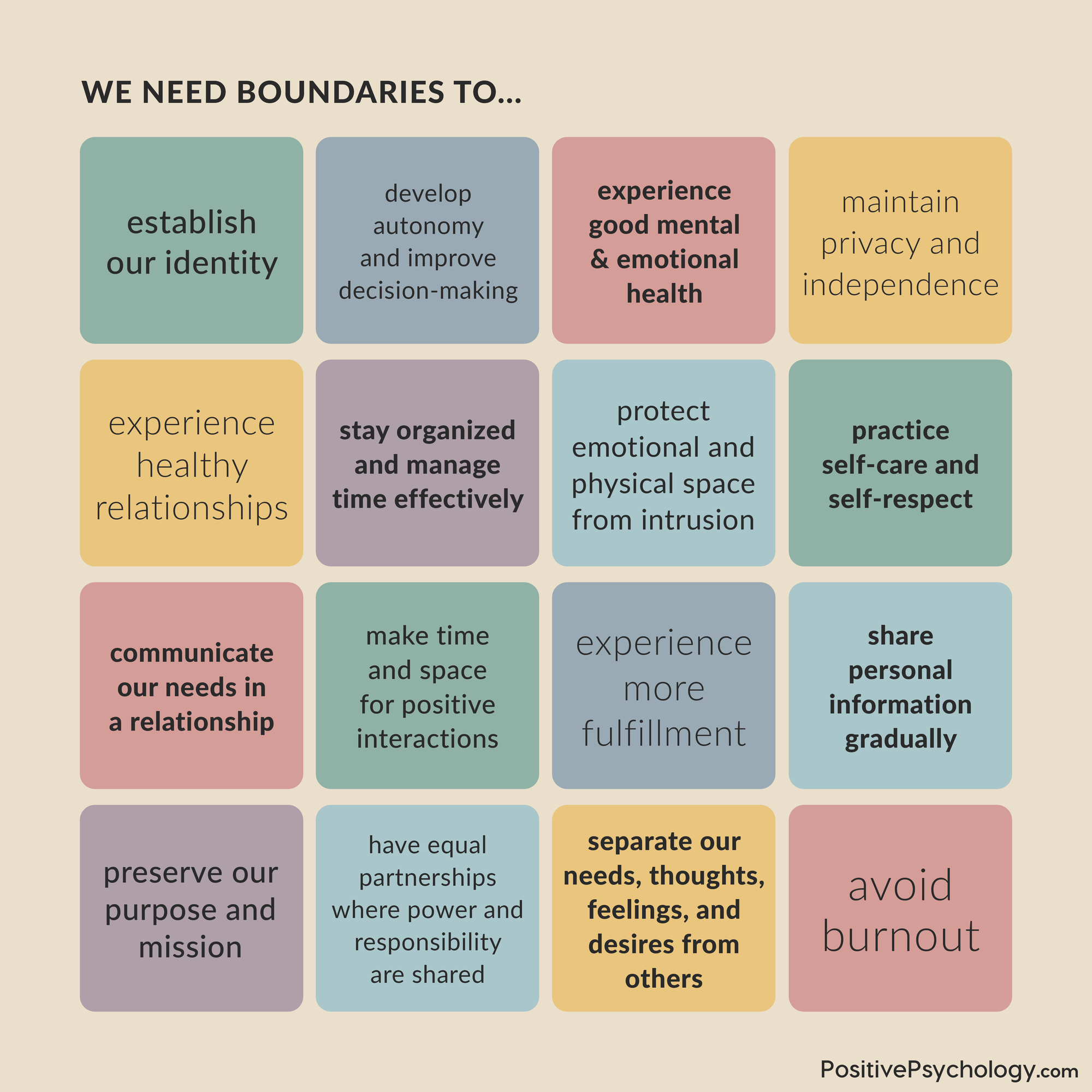How to Set Boundaries in Your Relationships and Why It's Important for Your Well-Being
Setting boundaries is a crucial aspect of maintaining healthy relationships. It involves communicating your needs, values, and limits in a clear and assertive manner. When we fail to set boundaries, we may find ourselves feeling overwhelmed, resentful, or taken advantage of.
Today, we'll explore the importance of setting boundaries in your relationships and provide practical tips for how to do so effectively.
Why Setting Boundaries is Important for Your Well-Being
Protects Your Physical and Emotional Health: Setting boundaries can help protect your physical and emotional health by preventing others from crossing your limits or taking advantage of your generosity. It can also help you maintain a sense of balance and prevent burnout.
Enhances Your Self-Esteem: Setting boundaries can enhance your self-esteem by helping you assert your needs and desires in a respectful and confident manner. When you prioritize your own well-being and communicate your boundaries effectively, you send a message to others that you value yourself.
Builds Respectful Relationships: Setting boundaries can help build more respectful and positive relationships. When you communicate your needs and limits clearly, you create a more honest and open dynamic with others, which can lead to greater trust and understanding.
Reason we need boundaries by Positive Psychology.
How to Set Boundaries in Your Relationships
Identify Your Needs and Limits: The first step in setting boundaries is identifying your own needs and limits. Take some time to reflect on what is important to you in your relationships, and what behaviors or situations you find unacceptable.
Communicate Your Boundaries Clearly: Once you've identified your needs and limits, it's important to communicate them clearly to others. Be assertive and use "I" statements to communicate your needs in a non-blaming and respectful way.
Be Consistent: Setting boundaries is an ongoing process, and it's important to be consistent in enforcing them. Follow through on consequences when boundaries are crossed, and don't be afraid to reassert your boundaries if they are not being respected.
Seek Support: Setting boundaries can be challenging, particularly if you're used to putting others' needs before your own. Seeking support from a therapist or trusted friend can be helpful in navigating the process of setting boundaries.
Setting boundaries is an important aspect of maintaining healthy relationships and protecting your own well-being. By identifying your needs and limits, communicating your boundaries clearly, being consistent, and seeking support when needed, you can build more respectful and positive relationships. Remember that setting boundaries is an ongoing process, and it may take time and effort to establish them effectively. However, by prioritizing your own well-being and communicating your needs assertively, you can build stronger, healthier relationships and live a more fulfilling life.
Yours truly,
Michelle & Co.


